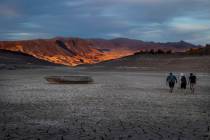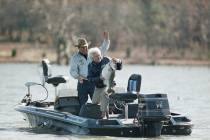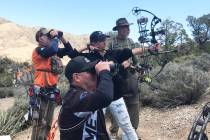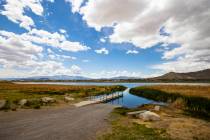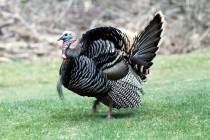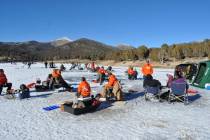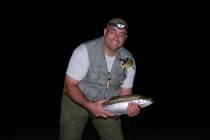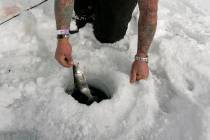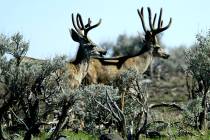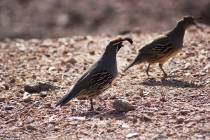Lead ammo ban would prove disastrous
Hold on to your hats, folks. Our western neighbor is about to step off the political and fiscal cliff, and no doubt there are some people who hope Nevada follows suit. If that happens, the state’s hunters and recreational shooters could end up paying much more for their hunting ammunition, but only if they can find enough to meet their needs, and if they can afford to buy it once they find it.
On Monday, the California State Senate passed what is perhaps the most far-reaching ammunition ban in the history of the United States. Assembly Bill 711 expands the state’s current prohibition of hunting with lead bullets or lead shot within the roosting and scavenging territories of the California condor and makes it illegal to hunt with lead projectiles of any kind in the state. The Senate passed the legislation 27-15, and the bill awaits Gov. Jerry Brown’s signature.
Proponents of this legislation have promoted AB 711 as a conservation bill, and yet by pushing this legislation forward they are about to drastically restrict the state’s primary source of conservation funding. Those funds are generated through an excise tax collected on the sale of firearms and ammunition, which then are dispersed back to the states and American commonwealths through the Wildlife Restoration Program, which was created by the passage of the Pittman-Robertson Act in 1937. Nevada’s own Sen. Key Pittman was one of the primary sponsors of the legislation.
Just how much money does California stand to lose? That depends on how many sportsmen and women are priced out of hunting by the high cost of nonlead ammunition, because that will have a direct impact on the state’s appropriation from the Wildlife Restoration Program. For 2013, California’s total appropriation was more than $17 million. Nevada’s appropriation was more than $9 million.
The bottom line is that when people don’t buy ammunition, then the federal government can’t collect the Pittman Robertson excise taxes, which means the funding for wildlife management and conservation programs is reduced. Not only in California, but nationwide.
Another thing to consider is the economic impact of hunting in states such as California and Nevada. If people quit hunting, they also stop buying hunting licenses. Moreover, they stop spending money on hunting-related products and services. According to the Congressional Sportsman’s Foundation, California hunters spent 6.7 million days afield, directly contributed $1.1 billion to the economy and supported 21,000 jobs in 2011. Throw in anglers, and those numbers jump to 3.5 million days afield, $3.5 billion dollars and 56,000 jobs. With salaries and taxes — federal and state — thrown in, the ripple effect of sportsmen’s contribution was $6.75 billion in 2011.
In Nevada, hunters spent 796,000 days in the field, spent $219 million and supported 3,058 jobs. With anglers included, those numbers climb to 2.2 million days afield, $409 million and more than 5,000 jobs. Add state and federal taxes, along with $205 million in wages, and the ripple effect is a $615 million contribution to Nevada’s economy. That is not chump change, and a significant amount of that money is spent at convenience store-gas stations, restaurants and hotels in rural communities.
My grandmother used to warn against throwing the baby out with the bathwater. It would appear that California is about to do just that. Then again, perhaps the real agenda behind AB 711 isn’t conservation at all, perhaps it is really nothing more than a thinly veiled attempt to stop hunting and recreational shooting in the once-golden state.
Freelance writer Doug Nielsen is a conservation educator for the Nevada Department of Wildlife. His “In the Outdoors” column, published Thursday in the Las Vegas Review-Journal, is not affiliated with or endorsed by the NDOW. Any opinions he states in his column are his own. He can be reached at intheoutdoorslv@gmail.com.



